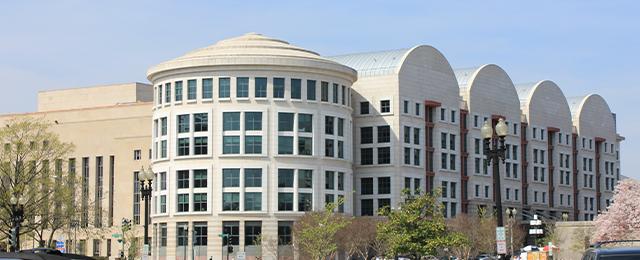Fired CPB Board Members Sue Trump Administration
U.S. judge issues temporary restraining order stopping the removal of three board members

The professional video industry's #1 source for news, trends and product and tech information. Sign up below.
You are now subscribed
Your newsletter sign-up was successful
WASHINGTON—The Corporation for Public Broadcasting has filed a lawsuit to stop the Trump administration from firing three of its board members, claiming the president has no power to do so.
The president does nominate CPB board members, who must be confirmed by the Senate.
On April 28, the Trump administration moved to fire three of five CPB board members, Tom Rothman, Diane Kaplan and Laura Ross. In response, on Tuesday, April 29, the CPB, its board of directors and the three board members filed a lawsuit in U.S. District Court for the District of Columbia to stop the terminations. The judge has issued a temporary restraining order stopping the firings until both sides have presented their legal arguments.
The firings escalate an ongoing dispute between the Trump administration and Republican members of Congress who have been attacking public media for political bias and attempting to cut all funding to the CPB and public media.
FCC Chair Brendan Carr has joined in the effort by calling for the end of funding to CPB. The regulatory agency has opened an investigation into PBS and NPR sponsorship revenues.
In the court brief, the plaintiffs cite extensive legal arguments that the CPB was created as an independent private company to protect it from partisan political interference.
“As set forth in the Act, government guidance, and well-established legal precedent, the CPB was created by Congress to expressly be ‘a private corporation [to] be created to facilitate the development of public telecommunications and to afford maximum protection from extraneous interference and control,’ ” the brief contended. “To ensure that CPB was insulated from partisan governmental interference and control and ensure its autonomy, Congress expressly provided various protections, including that: CPB is not a federal agency subject to the president’s authority, but rather a private corporation.”
The professional video industry's #1 source for news, trends and product and tech information. Sign up below.
The brief also argues that the legislation creating the CBP stipulates it “will not be an agency or establishment of the United States Government. The Corporation shall be subject to the provisions of this section, and, to the extent consistent with this section, to the District of Columbia Nonprofit Corporation Act.”
In addition, the plaintiffs argue, “CPB’s Board members are not officers of the United States, and thus are not within the removal provisions of Article II of the Constitution” and that the CPB board members and staff are not employees of the U.S. government. It also stressed that CPB is not listed as an agency of the U.S. government.
“Even the United States Government Manual, which has been published for over 80 years by the National Archives and Records Administration, itself being an executive agency, and which provides information on the agencies of the legislative, judicial, and executive branches, does not even mention the CPB anywhere among its listing of governmental and quasi-governmental agencies covering over 2,000 pages for the obvious reason that CPB is a private, non-profit corporation that is not subject to control by the Executive Branch,” the brief argued.
The full brief can be found here.
George Winslow is the senior content producer for TV Tech. He has written about the television, media and technology industries for nearly 30 years for such publications as Broadcasting & Cable, Multichannel News and TV Tech. Over the years, he has edited a number of magazines, including Multichannel News International and World Screen, and moderated panels at such major industry events as NAB and MIP TV. He has published two books and dozens of encyclopedia articles on such subjects as the media, New York City history and economics.

